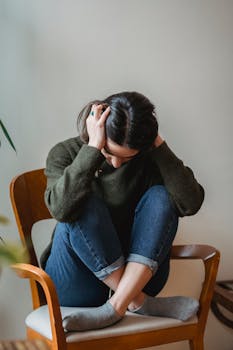What is anxiety coping methods?

What is anxiety coping methods?
Anxiety is a common experience that many of us face at various points in our lives. It can manifest as a feeling of unease, worry, or fear that affects our daily activities and overall well-being. Understanding anxiety coping methods is essential for managing these feelings effectively. This blog post is designed for anyone looking to enhance their mental health through practical strategies and coping techniques.
Understanding Anxiety
Anxiety is our body’s natural response to stress. It’s that flutter in your stomach before a big presentation or the racing thoughts that keep you awake at night. Anxiety can be triggered by numerous factors, including work pressures, personal issues, or health concerns. When anxiety remains unresolved, it can disrupt daily life, making even simple tasks feel overwhelming.
Types of Anxiety Disorders
There are several types of anxiety disorders, each characterized by different symptoms and triggers:
- Generalized Anxiety Disorder (GAD): Constant and excessive worry about various aspects of life.
- Social Anxiety Disorder: Intense fear of social situations, leading to avoidance behaviors.
- Panic Disorder: Recurrent and unexpected panic attacks, which are sudden surges of intense fear or discomfort.
Understanding these disorders is crucial in recognizing how they affect individuals differently. For more insights, I recommend checking out Understanding Anxiety Disorders.
Symptoms of Anxiety
Anxiety symptoms can manifest in various ways, including:
- Physical Signs: Increased heart rate, sweating, trembling, or muscle tension.
- Emotional Signs: Feelings of apprehension, restlessness, or irritability.
- Behavioral Signs: Avoiding certain situations or procrastinating tasks.
Recognizing these symptoms can be the first step toward seeking help or implementing effective coping strategies. The National Institute of Mental Health offers more detailed information on symptoms and treatments.
Coping Methods for Anxiety
When managing anxiety, various coping strategies can be beneficial. Finding what works for you can lead to improved mental health and a better quality of life.
Therapeutic Techniques
Therapy can be a powerful ally in managing anxiety. Evidence-based techniques such as Cognitive Behavioral Therapy (CBT) focus on changing negative thought patterns and behaviors. Exposure therapy gradually exposes individuals to their fears in a controlled environment, helping to reduce anxiety over time. Both methods can be effective in treating anxiety disorders. For more on these techniques, visit the Anxiety and Depression Association.
Mindfulness and Relaxation Techniques
Incorporating mindfulness practices into your daily routine can significantly reduce anxiety. Techniques such as:
- Meditation: Focusing your mind reduces stress and anxiety.
- Deep Breathing Exercises: Calms the body and mind by promoting relaxation.
- Progressive Muscle Relaxation: Helps relieve tension by systematically tensing and relaxing muscle groups.
These practices encourage present-moment awareness and help ground you during anxious times. More details on mindfulness can be found in the Self-care for Anxiety article.
Lifestyle Changes
Adopting a healthier lifestyle can also play a significant role in anxiety management. Consider:
- Exercise: Regular physical activity can boost mood and reduce anxiety levels.
- Nutrition: A balanced diet supports brain health and influences emotional well-being.
- Sleep: Quality sleep is vital for managing anxiety and overall mental health.
Making small adjustments in these areas can lead to substantial improvements over time. For tips on integrating these changes, check out 13 Ways to Cope.
Support Systems
Building a strong support network is crucial in managing anxiety. Whether it’s friends, family, or professionals, having people to talk to can provide comfort and guidance. Seeking help from a therapist or counselor can also offer additional coping strategies tailored to your needs.
Practical Tips for Implementing Coping Methods
Now that you’re familiar with various coping methods, here are some actionable steps to incorporate them into your daily routine.
Setting Realistic Goals
Start by setting achievable goals for yourself. Instead of aiming for perfection, focus on incremental changes, such as practicing meditation for five minutes each day. This approach keeps you motivated and less overwhelmed.
Creating a Personal Coping Plan
Develop a personalized coping strategy based on your unique triggers and symptoms. Consider what techniques resonate with you and outline steps to implement them. This plan should be flexible and adaptable to your changing needs.
Using Technology for Anxiety Management
Technology can be a valuable tool in managing anxiety. Various apps are designed to assist with mindfulness, relaxation, and mood tracking. Explore options like meditation apps or anxiety management resources to find what works best for you.
Conclusion
Anxiety coping methods are essential for navigating life’s challenges and maintaining mental well-being. By understanding anxiety and implementing effective coping strategies, you can improve your quality of life. Remember, prioritizing your mental health is not just beneficial—it’s necessary for a fulfilling life. Embrace these coping methods and make them a part of your daily routine for a healthier, happier you.